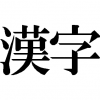Session note ① ~に対して、~にとって(N3 level)
In this post, I take note for my session to one student studying Japanese language so that the student can review what he studied with me easily. Also, I would like to share this with other students studying N3 level.
Today’s session note is how to use “~に対して”、”~にとって” with my natural Japanese voices.
(A bit embarrassing..)
・~に対して
~ni taishite
Meaning:
Showing object of some actions. Equivalent to “to” or “toward” in English.
Example:
A.先生に対して、質問をする。(Sensei ni taishite、shitsumon wo suru)
I ask question to the teacher.
⇒ Sensei is object of asking question.
B.母は私に対して、やさしい。 (Haha ha watashi ni taishite、yasashii)
My mother is kind to me.
⇒ Watashi is object of being kind.
・~にとって
~ni totte
Meaning:
Showing criteria or standard to judge and evaluate something
Example:
A.私にとって、英語は難しい。(Watashi ni totte、eigo ha muzukashii)
English is difficult for me.
⇒Standard to judge is “me”. I think English is difficult, but others may think it’s easy…
B.学生にとって、この問題は難しい。 (Gakusei ni totte、kono mondai ha muzukashii)
It is difficult for students to solve the question.
⇒Standard to judge is “students”. Students think it’s difficult, but teacher may think it’s not difficult.
Let’s Practice
To master language, it’s the best way to make sentence and use it!
Let’s practice by sending messages in Japanese to me, asking more questions about this post to me!
How was this post?
If you like this or feel this is useful, please share on Facebook and retweet on Twitter!
If you wanna join Leo Sensei’s group on Facebook, click Facebook mark on top or bottom and send friend request to me. You can get updated information and ask me freely about Japanese language and culture and so on.




















I follow ni taishite and ni totte in Japanese.Your explanation is very clear to understand but I think if there some more example for us it is better for us study well.
Thank you for the message.
I will add more usefule examples for you!